Modern AI and machine learning generative models represent an exiting opportunity for designers to conceptualize and explore the generation of new communication tools and applications.Through this methods, interaction withing humans and other living beings as plants can be enhanced. By introducing students into Generative Machine Learning from a designers perspective, the proposed workshop aims to promote the generation of new emotion based icons and interfaces for human - plant communication and interaction. This approach can result in new proposals for emoticons, stamps and icons, user interfaces, apps, services and products.
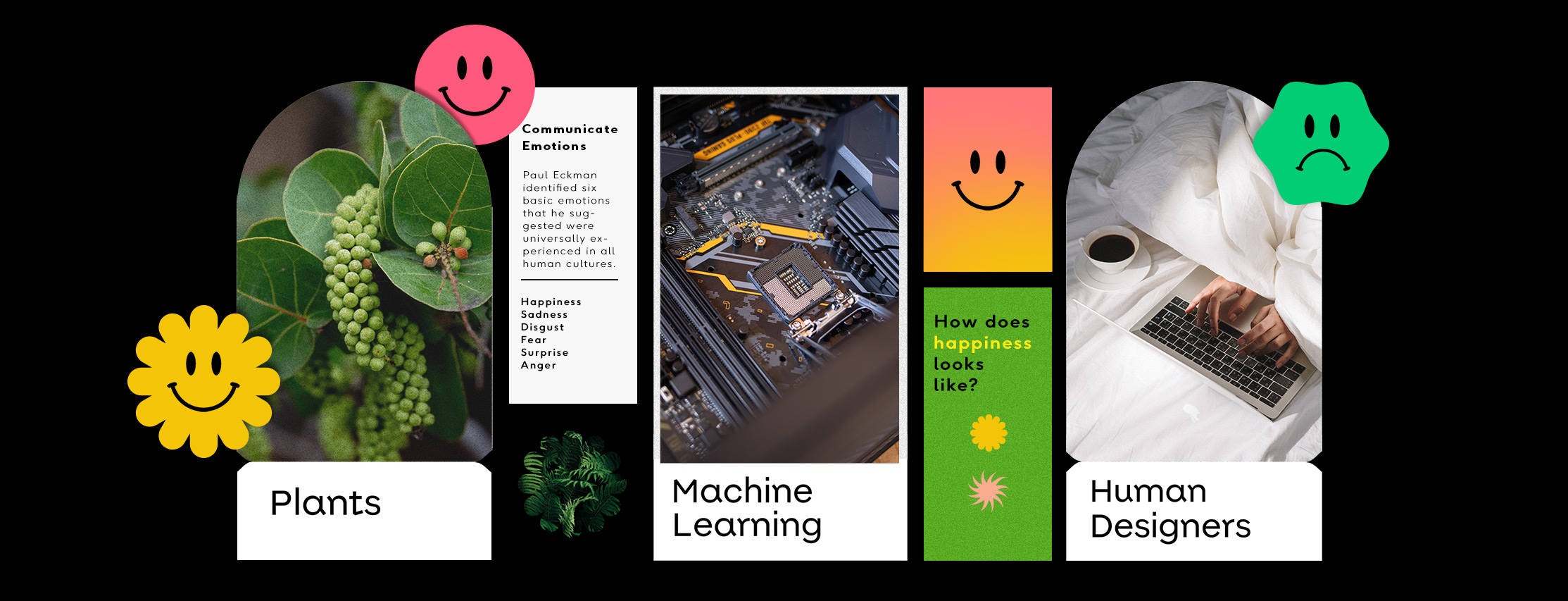

During this Workshop you will be working online with our Plant as a TeamMate. The plant is connected to a sensor in order to capure information about it's condition like humidity and temperature.
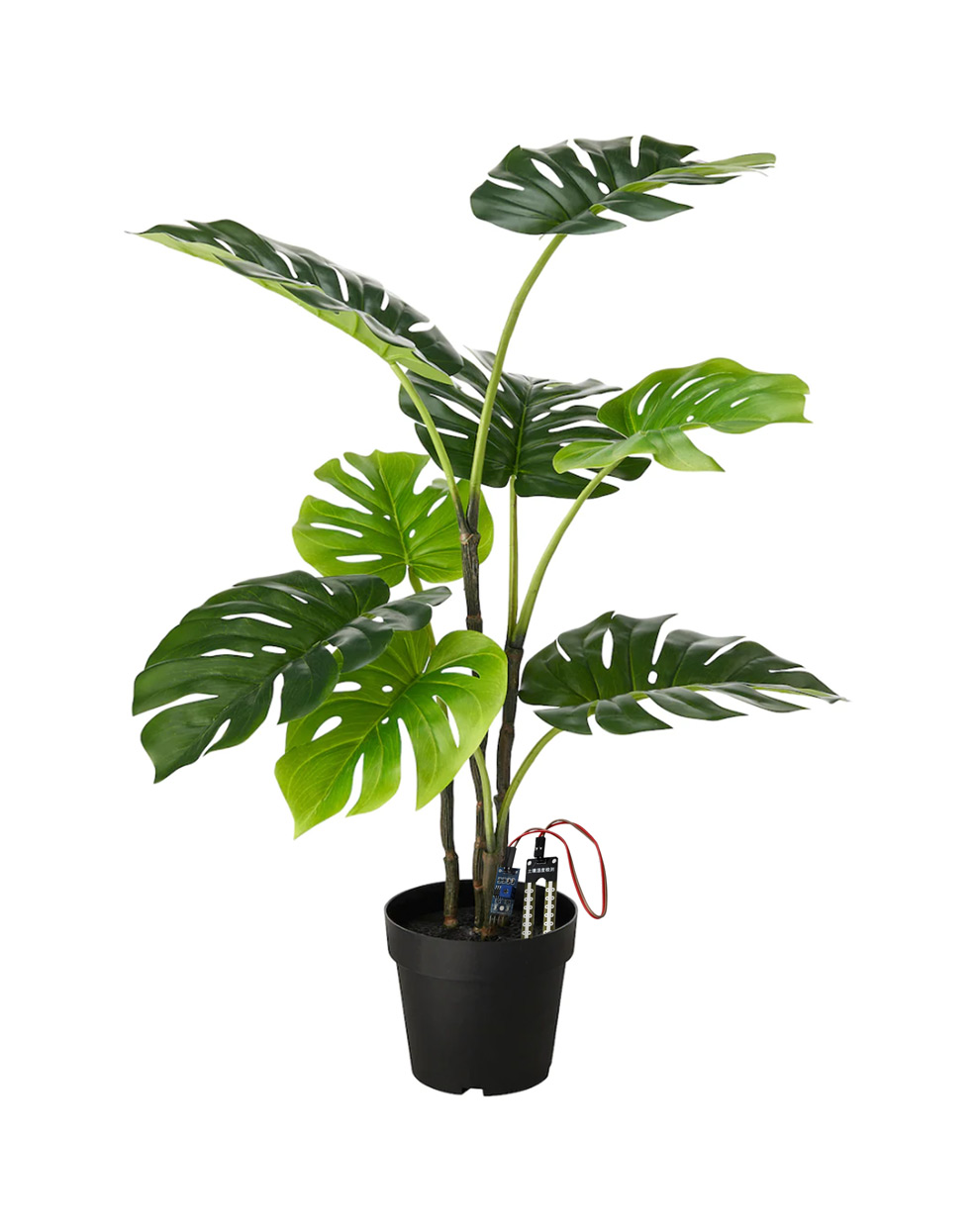
Using the plant real-time information, the design team will propose a way to interpret this data in order to communicate emotions.
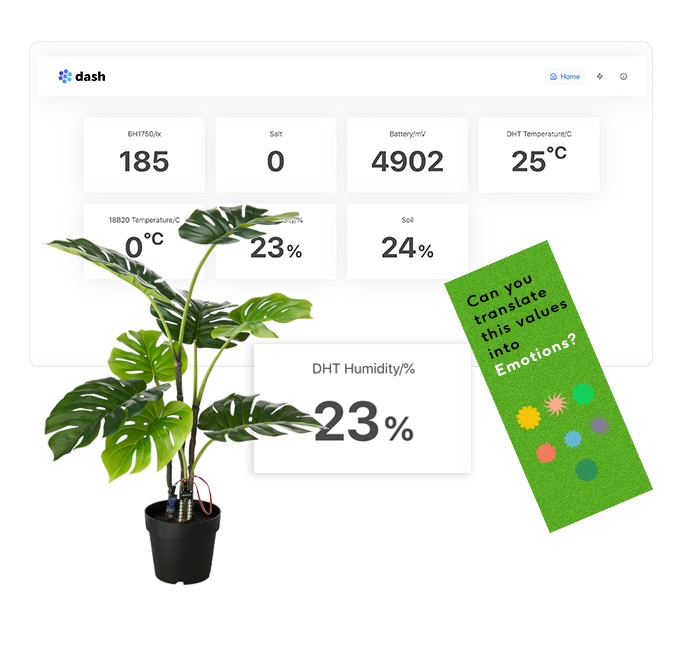
The designers will generate a system capable of produce new visual elements that can responde to the real-time data including emotional features. The designers will train some machine learning models using GAN (Generative Adverasarial Networks) during the workshop.

Finally the designers can use the results of the training model as a system of visuals capable of communicate emotions using the plants real-time-data. This output can be incorporated in a proposal of service design, product, interface, space or experience.

During this workshop, the plant, the designers and the machine learning models will take important decisions during the design process in order to create a system capable of express emotions. Technology and artificial intelligence are opening the possibility to explore the interaction with different agents and models.

Generative Adversarial Networks, or GANs, are a deep-learning-based generative model.More generally, GANs are a model architecture for training a generative model, and it is most common to use deep learning models in this architecture.

To start this collaborative workshop, we will conduct a series of lectures about the representation of emotions, plants and machine learning. This approach will help you to understand the background and propose a better solutions.
During the Workshop (February 18 to 26). The students will make teams and decide a possible approach to the project. After the concept creation, they will work in their own datasets to train the model and interact with the plant real-time data via online.
After the concept creation and exploring the generative design approach. The students can conceptualize how to use this elements in a real environment, service, product, experience, etc. and prepare a final presentation.
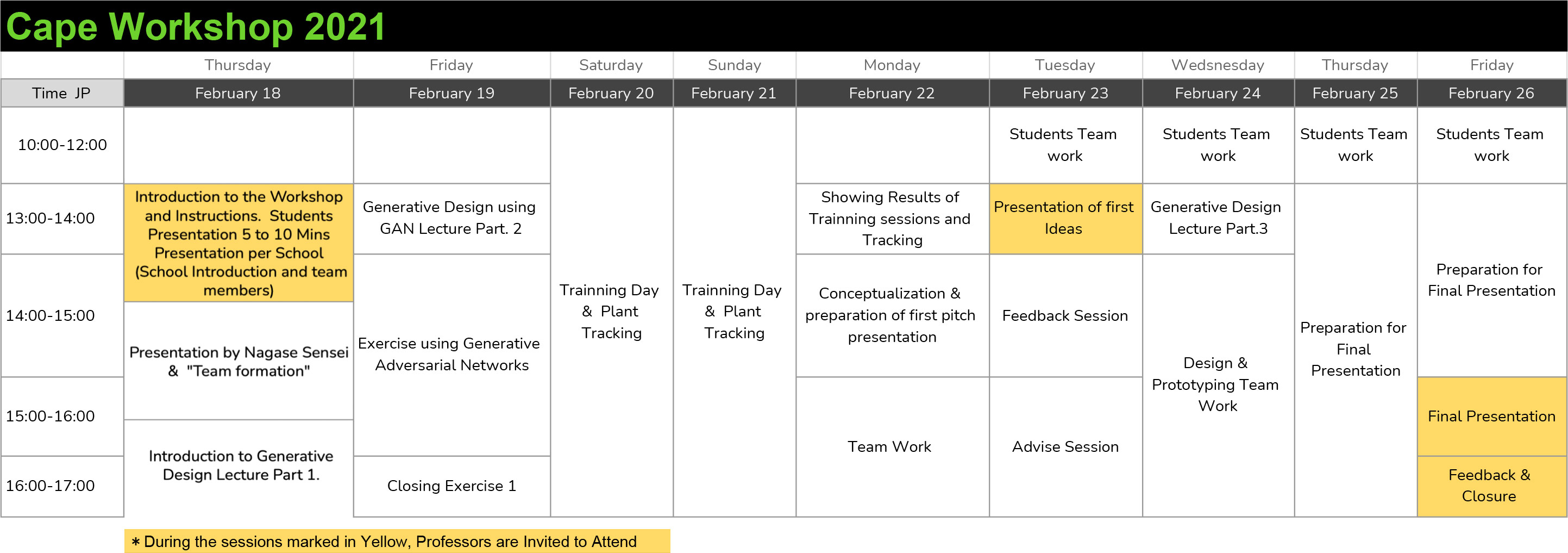

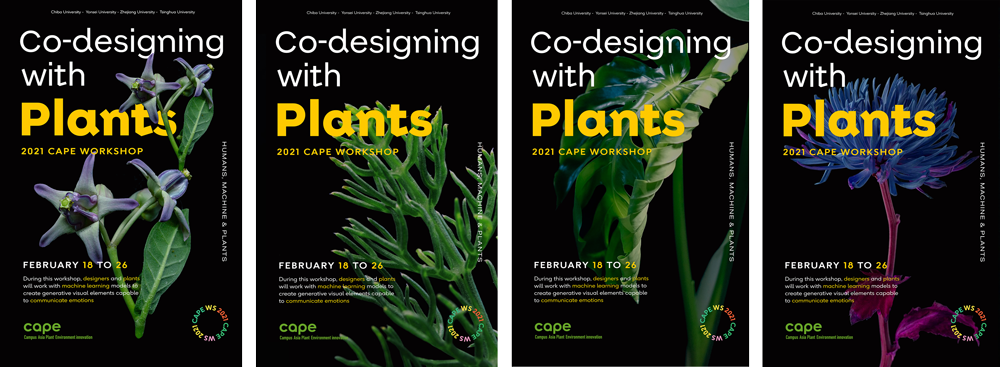
This Workshop is reserved to Chiba University, Yonsei University, Zhejiang University & Tsinghua University Students